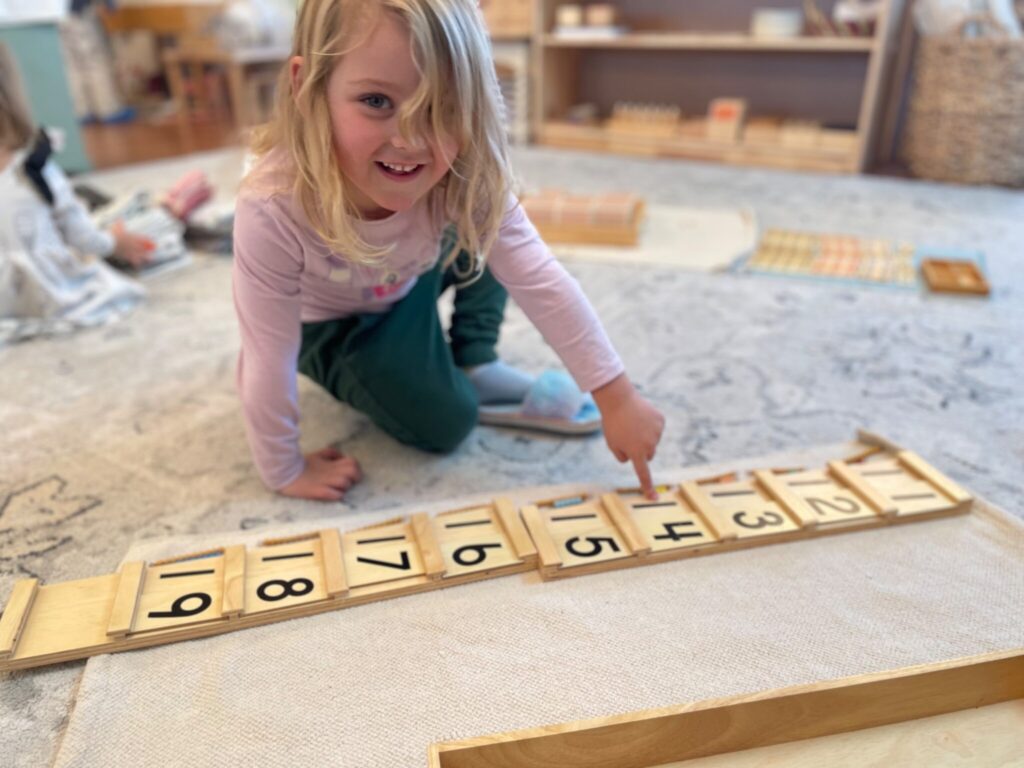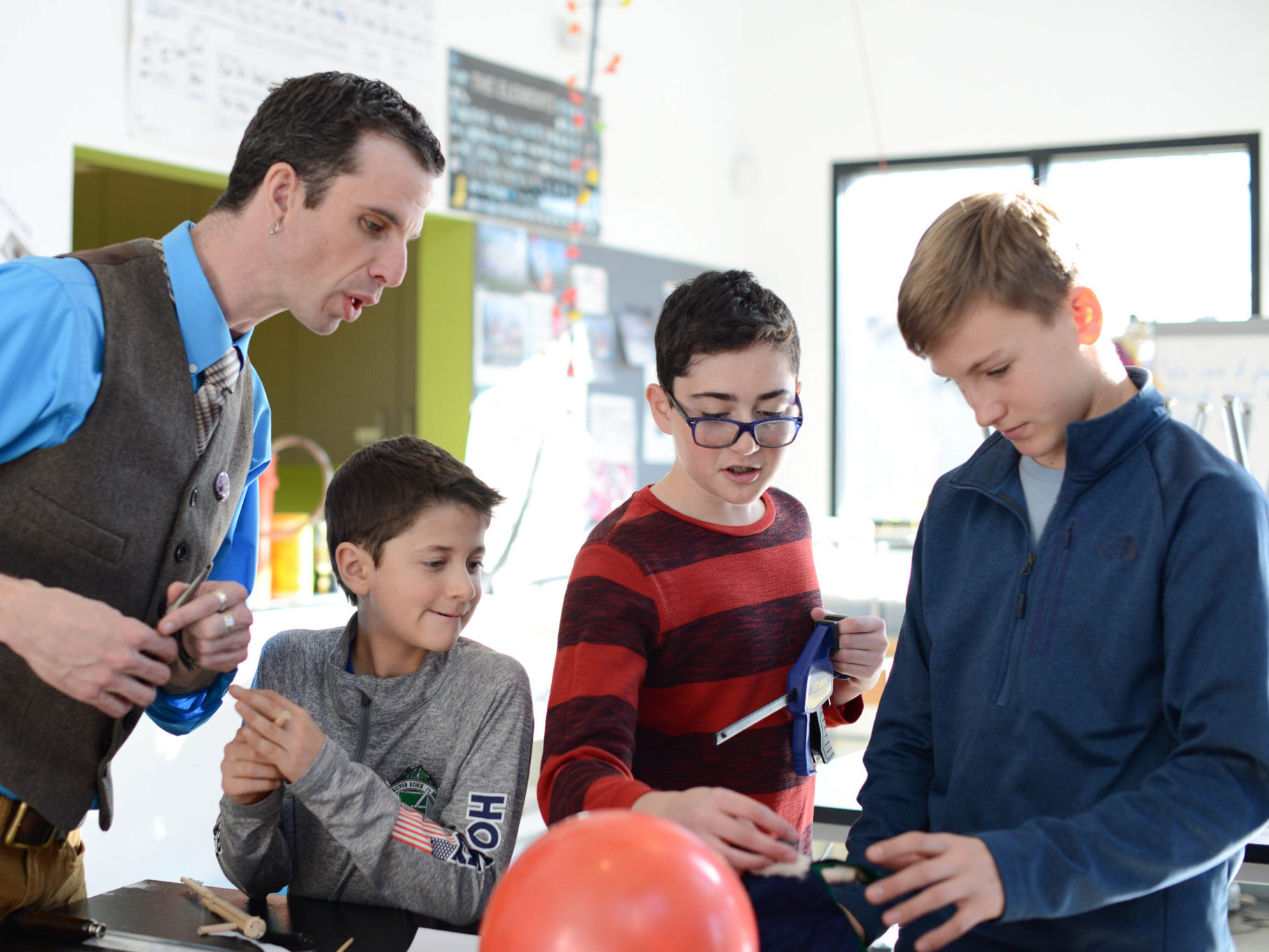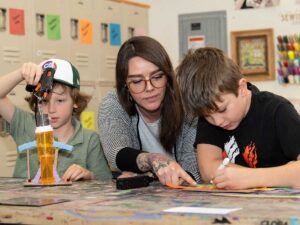The idea that an almost 120-year-old methodology would be a pioneer in the future of education may at first appear counterintuitive. But Dr. Maria Montessori’s whole child approach continues to prove that its science-based philosophy is both sustainable and flexible, generating leaders in virtually every field. And for the last 60 years, the Montessori School of Denver (MSD) has maintained a spirit of innovation anchored in the sound principles of Montessori, growing to meet the rapidly changing needs of students and the world at large.
As globalization and rapid advancements in technology continue to transform civic space and the world of work, education systems have grown increasingly disconnected from the realities and needs of global economies and societies. Education models must adapt to equip children with the skills to create a more inclusive, cohesive and productive world. – World Economic Forum
The Montessori School of Denver curriculum is innovative and interactive in method, scholarly in content, and global in scope. Lessons are taught so students can relate them to real-world experiences. The faculty teaches individual learning styles and assesses learning in a variety of ways. Core studies include mathematics, geometry, beginning algebra, language, creative writing, literature, science, history, civics, and technology. Specials programming includes the fine arts, an urban farming program, and a schoolwide service-learning program. MSD supports and nurtures student development in all areas: intellectual, physical, and social-emotional, ensuring that students are invested with the qualities and skills needed to become effective leaders.

Their strong foundation for leadership development includes:
- Independence and self-direction: MSD’s classrooms are designed to promote independence and self-directed learning. Students are given the freedom to choose the order of their academic work and proceed at their own pace with guidance from teachers. As students are ready to take on higher levels of challenge and responsibility, our faculty provides innovative opportunities to learn and grow. This fosters a sense of responsibility, initiative, and decision-making skills, which are essential attributes of effective leaders.
- Responsibility and accountability: MSD emphasizes personal responsibility and accountability at all times. Students are responsible for taking care of their materials, cleaning up after themselves, and contributing to the classroom community. This sense of responsibility helps develop leadership qualities like dependability, integrity, and ownership of one’s actions.
- Collaboration and teamwork: Montessori classrooms encourage students to work in multi-age groups, where older children act as mentors and leaders for younger ones. This collaborative environment allows students to respect the opinions of others, learn from those around them, and be teachers and mentors themselves. They develop social and communication skills and the ability to work effectively with others.
- Problem-solving and critical thinking: An MSD education promotes the development of critical thinking and solution-seeking skills. Students are consistently encouraged to explore, investigate, and find solutions independently. This allows for creativity, resilience, and the ability to analyze and address challenges— essential skills for effective leadership.

- Initiative and innovation: MSD values and nurtures students’ natural curiosity and encourages them to pursue their interest and passions. This environment fosters initiative and a willingness to take risks—qualities that can contribute to innovative thinking and leadership.
- Communication and public speaking: From the earliest ages, MSD’s classrooms encourage children to present their work, express their thoughts, and engage in discussions with peers and teachers. Regular practice in public speaking helps children develop confidence, articulate their ideas, and become effective communicators—a crucial skill for leaders.
- Emotional intelligence and empathy: MSD recognizes the importance of emotional intelligence and the development of empathy. Students learn early to identify and express their emotions and to respect the feelings of others, and consistently practice these skills. These qualities contribute to the ability to understand and connect with others, an essential aspect of effective leadership.
The world is rapidly changing, and an MSD education ensures that students are prepared for whatever comes next. It’s why their graduates are set up for success through the coming Fourth Industrial Revolution; not only are they equipped with the academic and social skills needed to take on any challenge they face after leaving our campus, but they also emerge ready to lead and excel.
For more information, visit www.montessoridenver.org/admissions/




